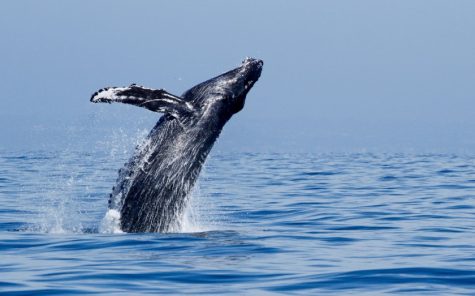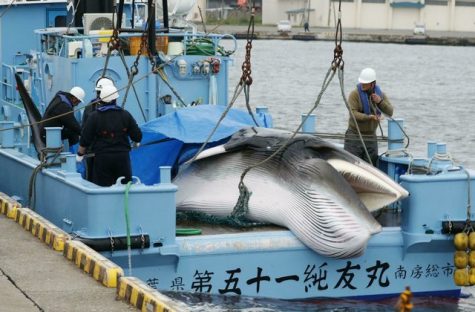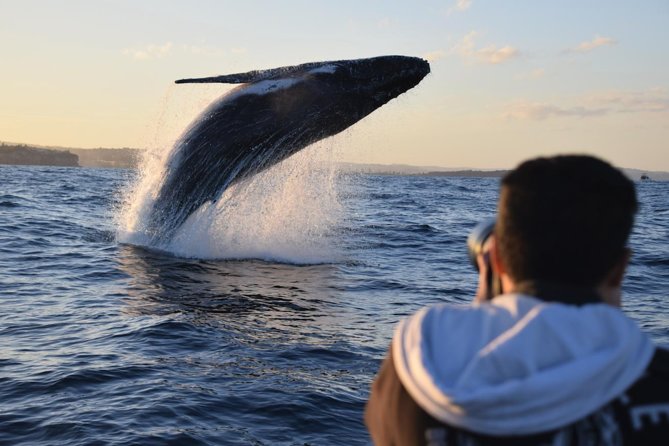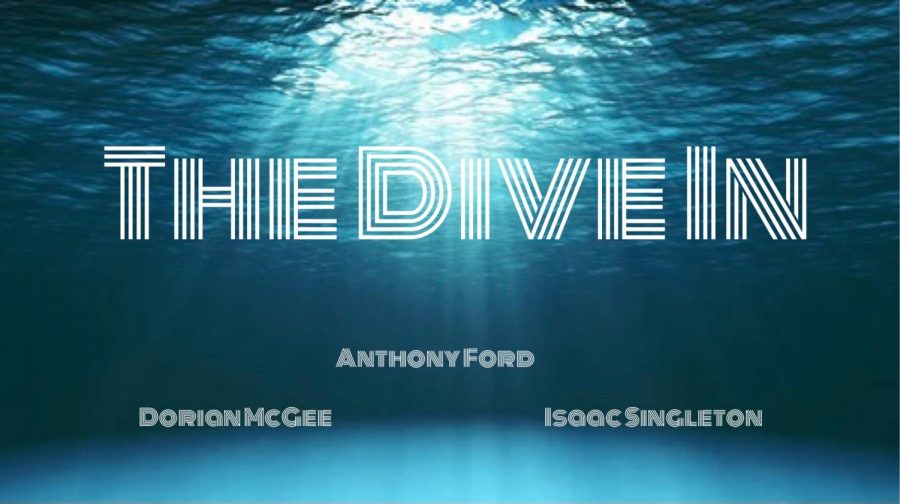How Quarantine is Helping Whales
Boy Photographing a Whale
April 19, 2021
The Coronavirus has killed millions of people and hospitalized even more. It’s a global tragedy, but because of the restrictions following the introduction of the virus, commercial whale hunting has had a significant decrease and whales are thriving. In Iceland, they are getting extremely close to ending it altogether!
Heimir Hardarson, a captain for 30 years, who has taken people out to see to witness the beauty of the whales says that whale watching is, “Probably the most popular activity for visitors, foreign and domestic.” He comments on the beauty of the whales and says, ” “Very mystical creatures, floating around in their weightlessness.”
Though the pandemic has decreased the amount of visitors that Hardarson gets, it’s given the whales more peace and they’ve benefitted because of it.

Ari Friedlaender, a marine biologist/ecologist at the University of California, is currently studying how the quieter oceans have affected whales by measuring their stress levels through hormone samples. Friedlaender, states, “I think, overall, the pandemic has largely been a positive for whales. The thought is that as you decrease the amount of human activity and noisy environment, we’re going to see a decrease in the stress hormone levels of these animals,”
The way stress affects whales is very similar to how it affects people. Just like humans, it affects how whales can function both physically and mentally and if it gets bad enough it can even impact reproduction and lead to serious health problems. The reproduction factor is a big problem especially since the whale population has been dwindling the past few years, but since the oceans have been quieter, the whales have been in a better overall mood making them happier and healthier.

Whale hunting is close to being outlawed in Iceland, which is good because Iceland is one of the last three countries that still allows it. The other two are Japan and Norway. “There’s no need to hunt the whales anymore. There’s no need to eat them,” said Eva Björk Káradóttir, director of the Whale Museum in Húsavík. “The young generation born after 2000 don’t really do it.”
Trevor Wiseman, a sophomore at Shadow Ridge replied, “I think that this is an overall good thing. We don’t really need to hunt whales anymore. We can have any kind of meat delivered to our doorsteps and I feel like whales are worth more alive than they are dead and for food.”
It would be nice if the children of the future still got to see whales and ending whale hunting is just one step closer to that.








